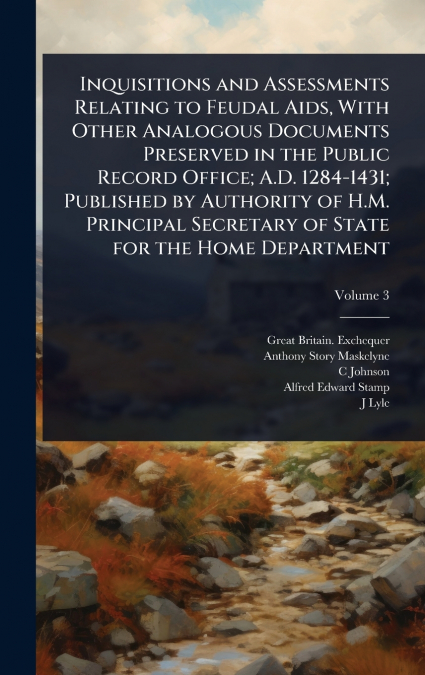
Anthony Story Maskelyne / C Johnson / Great Britain. Exchequer
Inquisitions and Assessments Relating to Feudal Aids, With Other Analogous Documents Preserved in the Public Record Office; A.D. 1284-1431; Published by Authority of H.M. Principal Secretary of State for the Home Department, Volume 3, is a meticulously compiled historical resource providing invaluable insight into the feudal system of medieval England. This volume presents a collection of inquisitions and assessments related to feudal aids, offering a detailed snapshot of the financial and legal obligations of the time. Preserved within the Public Record Office, these documents shed light on the interactions between the Crown and its subjects, detailing how feudal dues were levied and managed.Edited by Anthony Story Maskelyne, C Johnson, Alfred Edward Stamp, and J Lyle, this authoritative work is essential for historians, legal scholars, and anyone interested in the socio-economic fabric of medieval England. The documents within offer primary source material for understanding the intricacies of English governance and the feudal system during the period of 1284 to 1431.This work has been selected by scholars as being culturally important, and is part of the knowledge base of civilization as we know it. This work was reproduced from the original artifact, and remains as true to the original work as possible. Therefore, you will see the original copyright references, library stamps (as most of these works have been housed in our most important libraries around the world), and other notations in the work.This work is in the public domain in the United States of America, and possibly other nations. Within the United States, you may freely copy and distribute this work, as no entity (individual or corporate) has a copyright on the body of the work.As a reproduction of a historical artifact, this work may contain missing or blurred pages, poor pictures, errant marks, etc. Scholars believe, and we concur, that this work is important enough to be preserved, reproduced, and made generally available to the public. We appreciate your support of the preservation process, and thank you for being an important part of keeping this knowledge alive and relevant.